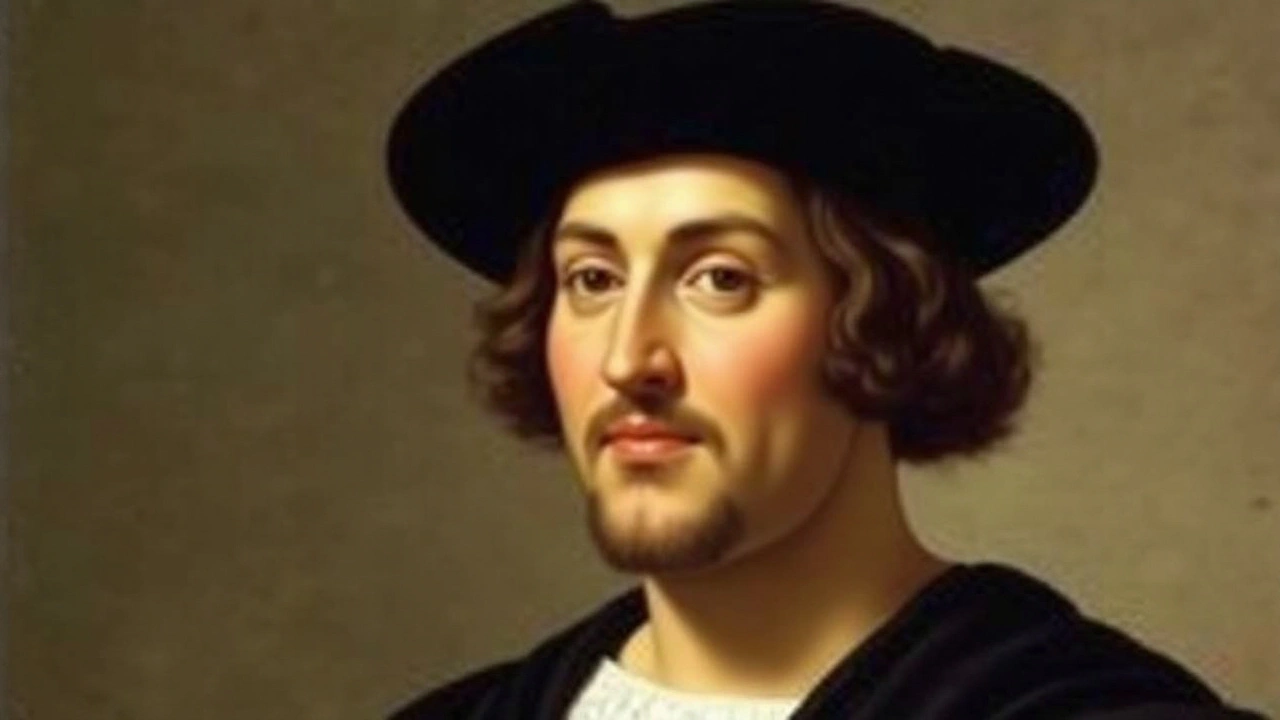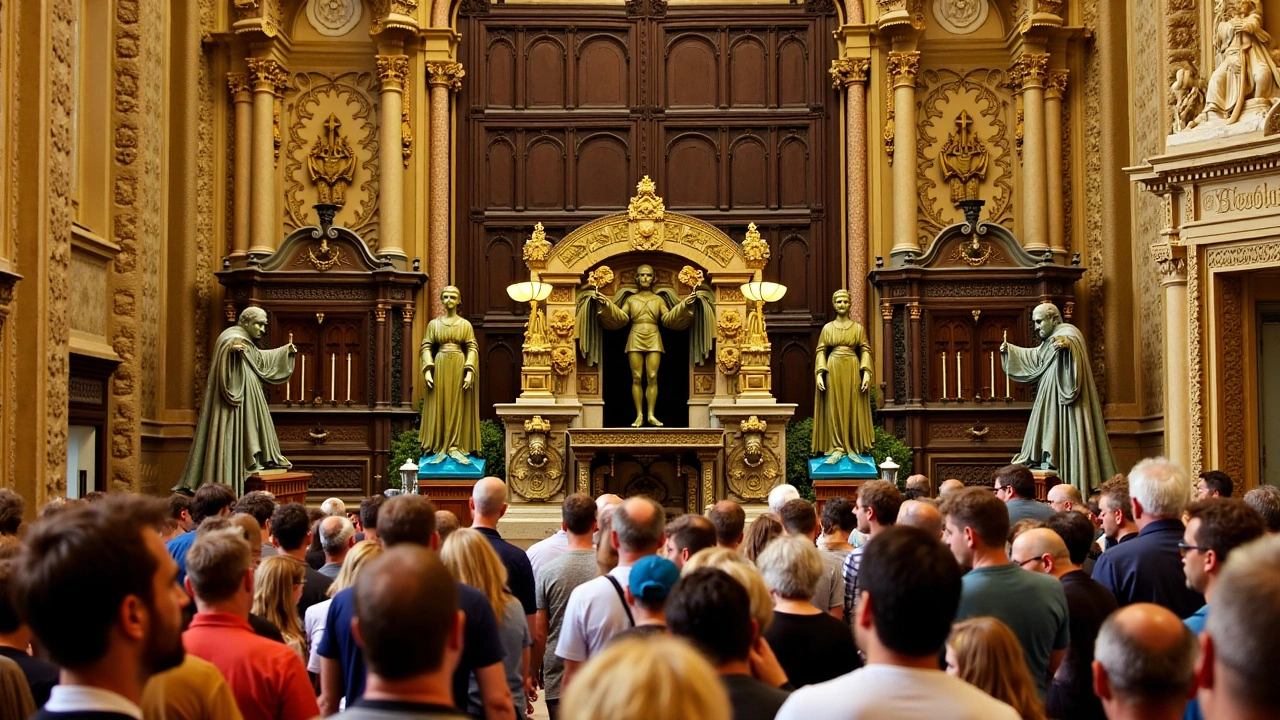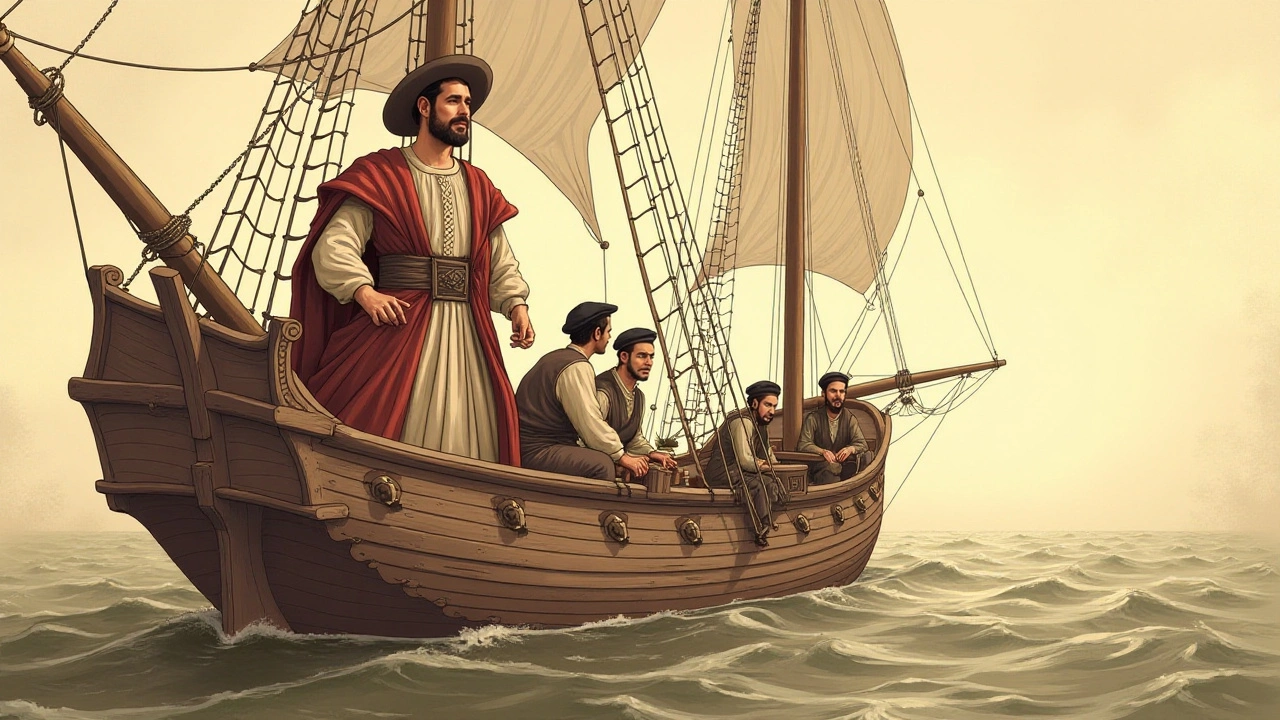The Groundbreaking Study of Columbus's Origins
In a remarkable twist to one of history's longstanding debates, researchers have unveiled a bold new hypothesis regarding the ancestry of Christopher Columbus. This revelation comes from a meticulous study conducted by a group of scientists from Spain, led by Professor José Antonio Lorente of the University of Granada. Spanning over two decades, this research aims to delve deep into the genetic roots of the famed explorer, potentially overturning centuries of established belief that Columbus hailed from Genoa, Italy.
What makes this study particularly captivating is its scientific rigor and the technologies utilized in unearthing the truths about Columbus's origin. At the heart of their endeavor is the exhumation of remains thought to be Columbus's from the Seville Cathedral—the final resting place for several noteworthy historical figures. With tremendous precision, the scientists extracted DNA samples and embarked on a comparative analysis with the genetic material from Columbus's immediate kin, namely his son Hernando and his brother Diego.
Unveiling the Jewish Heritage
The results of this advanced DNA analysis present a compelling case suggesting that Columbus's lineage is consistent with traits typical of Sephardic Jewish ancestry. This finding intersects intriguingly with the historical backdrop of 1492 when Spain notoriously enacted the Alhambra Decree, ordering the expulsion of Jews who refused to convert to Christianity. Could Columbus have been a descendant of those who faced such religious persecution? The implications of this genetic discovery potentially paint Columbus as a figure caught in the complex socio-political upheaval of 15th-century Spain.
The precision of the study has been heralded by Professor Lorente as ‘almost absolutely reliable,’ instilling confidence in the validity and significance of the findings. Moreover, these revelations go beyond personal ancestry, touching upon broader historical narratives and identities within Europe. It sheds light on the pervasive dynamics of culture, religion, and migration during Columbus's time, adding layers of understanding to a figure often perceived only through the lens of his voyages and discoveries.

Debunking the Genoese Theory
Integral to the context of this research is how it thoroughly debunks the long-held assumption of Columbus's Genoese origin. To solidify their claims, the researchers expanded their genetic investigation to include individuals bearing the last name Colombo in Italy. The analysis, unfortunately for proponents of the Genoese theory, presented no shared genetic ancestry between these individuals and Columbus's identified lineage.
This revelation lends credence to alternative scenarios of Columbus’s early life and upbringing, refocusing historical inquiry on Spain as his homeland. Simultaneously, it also opens the door to reimagine the motivations behind his voyages—seeing them not merely as explorations but as complex undertakings potentially intertwined with preserving personal and cultural identities amidst prevailing social structures.
The Documentary Revelation
The findings from this comprehensive study have been articulated and made publicly available through a documentary broadcast on Spain's national television network RTVE, titled ‘Columbus DNA: His True Origin.’ This documentary served as an accessible medium for presenting the intricate details of this scientific investigation to a wider audience, allowing viewers a glimpse into the cutting-edge methods used and the profound historical implications at stake.
Ultimately, the documentary serves not only as a presentation of evidence but also as a platform for discussing broader narratives about identity, belonging, and how history is often informed by emerging scientific insights. It reflects a growing recognition that as our scientific capacities improve, so too does our ability to revisit age-old questions with a fresh perspective, making history not just a static record but a dynamic dialogue across generations.

A Catalyst for Historical Reevaluation
The study’s claims present an intriguing challenge to historians and scholars worldwide, urging a reevaluation of the narratives surrounding Columbus. It invites educators and historians to query how the stories we tell about historical figures shape our collective understanding of the past—and how they should evolve with new evidence. While debates around Columbus have historically centered around the significance and ethical ramifications of his voyages, this new angle pushes for a deeper inspection of his personal identity and context.
In an era where identity and heritage continue to hold immense sway in societal discourse, the story of Columbus as potentially a Spanish Jew introduces powerful questions about lineage, migration, and the complex interplay of religious and cultural identities. It ultimately challenges the simplicity of entrenched historical narratives, inviting us to appreciate the multidimensionality of those who have shaped human history.
Continuing the DNA Journey
As this study garners attention and elicits various responses from multiple sectors—ranging from academic circles to public forums—the journey into understanding Columbus’s genetic heritage is far from over. The current findings lay a foundational canvas for future explorations, possibly involving wider DNA mapping projects or further comparative genetic studies across Europe.
Ultimately, one of the study's pivotal contributions is its encouragement of viewing history as an ever-evolving tapestry, with science and genetics playing crucial roles in unraveling its threads. The acknowledgement of Columbus's possible Sephardic Jewish heritage might serve as a starting point for necessary conversations about identity, complexity, and the many factors that shape the lives and legacies of individuals across history.

Write a comment